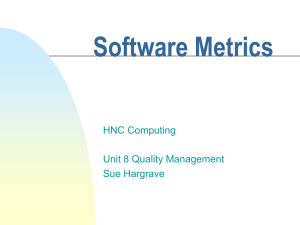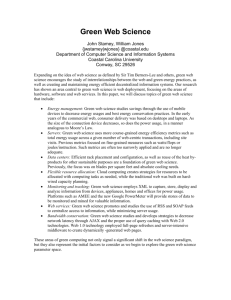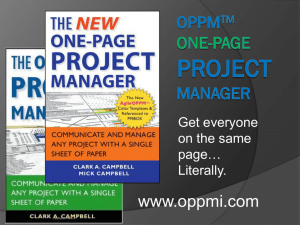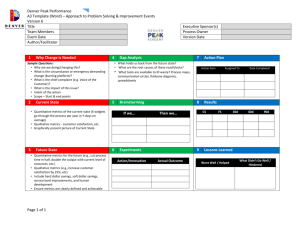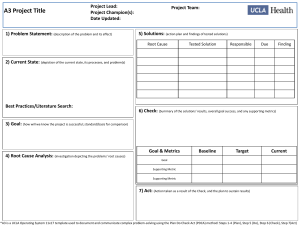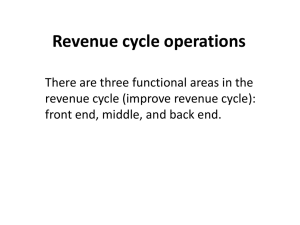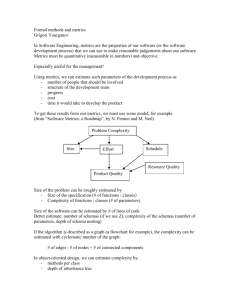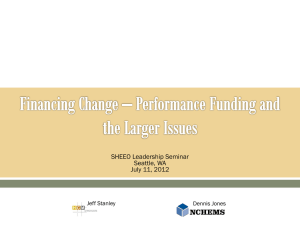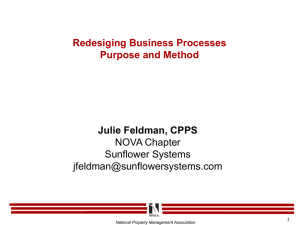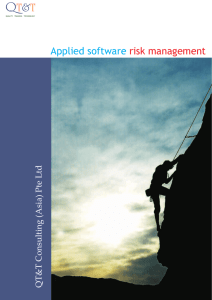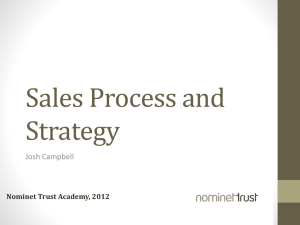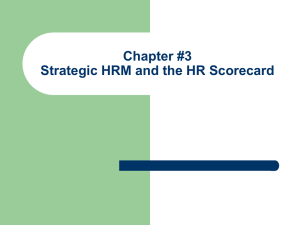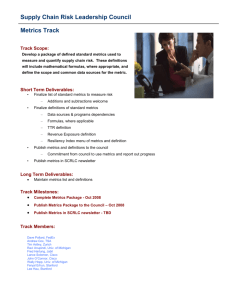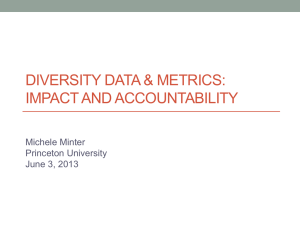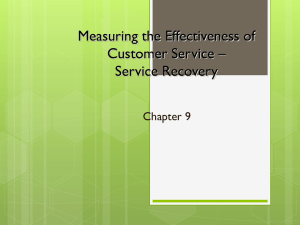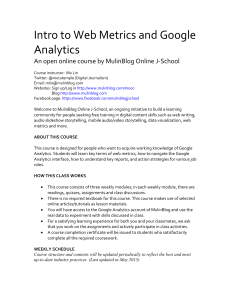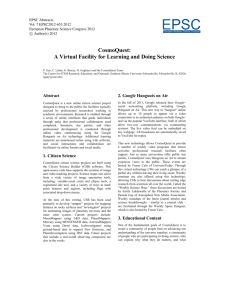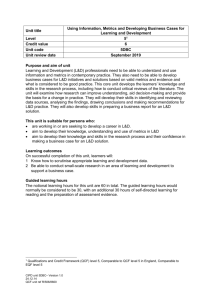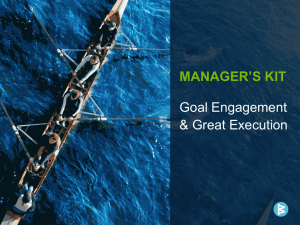From ideas to implementation
advertisement
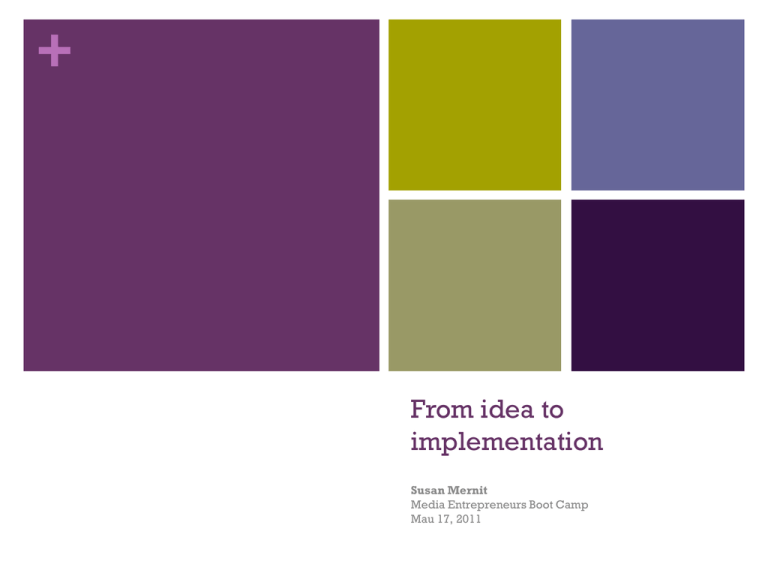
+ From idea to implementation Susan Mernit Media Entrepreneurs Boot Camp Mau 17, 2011 2 You’ve got a great idea and some $$--now what? + From idea to execution What this session will cover •Project cycles—where are you? •Who is your audience? •Who is on your team? •Kicking off the project •If you can’t measure it, you have not thought it through •Goals, targets, metrics •Product requirements & product development •Setting milestones & keeping a schedule •Community outreach & engagement •Heading for sustainability--$$ 3 + 4 What stage is your product at? •Pre-launch: Planning, strategy, building •Launch: Outreach & operations •Live: Engagement, metrics, sustainability, audience •Mature: Revenue optimization, metrics reviews, product extensions + 5 First--Who is your audience? 1. Decide who your audience is for the project What is their reading level? Are they on a computer or a mobile platform? What languages do they speak? How often will they visit? What will they DO on your site? 2. Create a brief or persona board about your audience—and refer to it, share w/ the team, board, etc. Validate ideas by asking community members for input right up front—and be prepared to take it + 6 Who is on your team? Basic questions: • What are the roles we need to make this happen? • What are the skills we need? • Who is the project lead? • Who do we have already? • Whom do we need to hire? • What are the roles and responsibilities? Harder questions: • What skills are we lacking? How do we get them? • Do we know what we don’t know? • How will doing this project change our current workflow? + 7 Kicking off the project Know before you start •Who is the lead? •Does every person have a defined role—and know what it is? •What project management tools are you using? Google docs, Basecamp, Open Atrium •How will the team know what to work on-- and in what order? • How are people accountable for results? •What kind of communication do you want—and how often? Don’t have analysis paralysis—do have schedules + 8 If you can’t measure it, you haven’t thought it through Setting metrics for success is the best focusing exercise you can do—and the best way to set expectations Things you can measure: •Impact—number of users, change in real world, engaged partners •Engagement- Unique visitors, time spent on site, comments posted, number of partners & posters •Web impact: Page views, unique visitors, downloads •Revenue: Is it making money? Profitable? •Real world impact—What changed? + 9 What you want the product to do? • for partners • for the audience Be able to state requirements Get assurances TECH parts will work together Be involved with the planning • Do rapid paper prototyping user testing • Tweak the wireframes & designs • Make sure YOU can explain it--accurately Would you let someone else manage your whole budget? No? Then why hand over your web/mobile project? + 10 Suggestions for keeping things on track: • Post plans, schedules, task lists where team can access • Weekly Team meetings • Weekly and monthly status updates from everyone • Empower project manager role • Flag YELLOW for issues; RED for delays—before they happen • MANAGE THAT BUDGET Use clear, external plans and goals keep everyone focused + Reach out to community! Oakland Local case study: Local site launched 2009 with $25 New Voices Grant--now 5,300+ Facebook fans, 3,00+ Twitter followers, 70K uniques per month visit site How did we make that happen? • Persona-building • Key partnerships & distribution • Aggressive social marketing • Added real value 11 + 12 Measure your work— learn from the data Core tools: • Google analytics • Facebook insite • Google search • Tweetreach • Bit.ly Check stats daily, weekly, monthly • Compile & discuss • Use to fine tune + 13 Don’t forget the $$=sustainability • • • What are your revenue strategies—you need a portfolio Who are your clients? What value do you offer? Why should they spend money with you? + 14 Resources House of Local: White papers & presos by Mernit, Booth, Gahran KDMC/USC Archive—3 years of info & ideas Block by Block conference 2010 archive Further reading: • Getting Things Done: The Art of StressFree Productivity by David Allen • The One-Page Project Manager: Communicate and Manage Any Project With a Single Sheet of Paper by Clark A. Campbell • The Definitive Guide to Project Management: The fast track to getting the job done on time and on budget (2nd Edition) by Sebastian Nokes + Questions & Discussions What’s the biggest risk? What do you know you don’t know? 15 +Susan Mernit House of Local, http://houseoflocal.org mernit@gmail.com Twitter: susanmernit Questions welcomed, we focus on community engagement & the future of news 16
